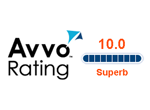Student Visas
![iStock_000006671934Small[1]](http://174.122.127.9/~dmk/wp-content/uploads/2011/07/iStock_000006671934Small1-300x199.jpg) For foreign individuals wishing to study in the U.S., being accepted into an American academic institution, language-training program, or vocational school that is approved by the United States Citizenship and Immigration Services (USCIS) is just the first step toward achieving your goal. The next step in the process is acquiring a student visa so that you can actually enter the United States.
For foreign individuals wishing to study in the U.S., being accepted into an American academic institution, language-training program, or vocational school that is approved by the United States Citizenship and Immigration Services (USCIS) is just the first step toward achieving your goal. The next step in the process is acquiring a student visa so that you can actually enter the United States.
Student Visa Types and Requirements
There are 2 types of student visas (not including exchange visitor visas). The first type is for students enrolled in colleges, universities, seminaries, conservatories, academic high schools, other educational institutions and language training programs. The second type of student visa is for people pursuing nonacademic or vocational studies.
In order to be eligible for either type of student visa, a foreign national wishing to study in the United States must show proof of three things.
1. Acceptance: A foreign national must show that he or she has been accepted as a full-time student in a U.S. educational, language-training or vocational program. In addition, the United States Citizenship and Immigration Services must have accepted the school or program as valid under the student visa requirements.
2. Educational Preparation: A foreign national must have successfully completed the course of studies that are normally required for enrollment in the school or educational program. Unless the purpose of coming to the United States is to participate in an English language-training program, each applicant must demonstrate a command of the English language sufficient to handle the course of study. An exception to this requirement will be made if the educational institution has made special arrangements for the applicant to enroll in English classes, or if the classes will be taught in the applicant’s native language.
3. Financial Resources: An applicant must prove that he or she has sufficient funds (or that those funds are being made available) to cover all school and living expenses during the time period that the applicant will be studying in the United States. Foreign students pursuing nonacademic or vocational studies must provide evidence that they currently have sufficient funds to pay all educational and living expenses during their entire stay in the United States, not just that those funds will be made available in the future.
Students seeking a student visa must show that they intend to remain in the United States for only a temporary period of time. Applicants that fail to demonstrate compelling reasons for them to return to their homeland after their period of study is complete will face a high risk of having their student visa application rejected.












